One year after Türkiye’s earthquakes, recovery takes many forms
February 6, 2024
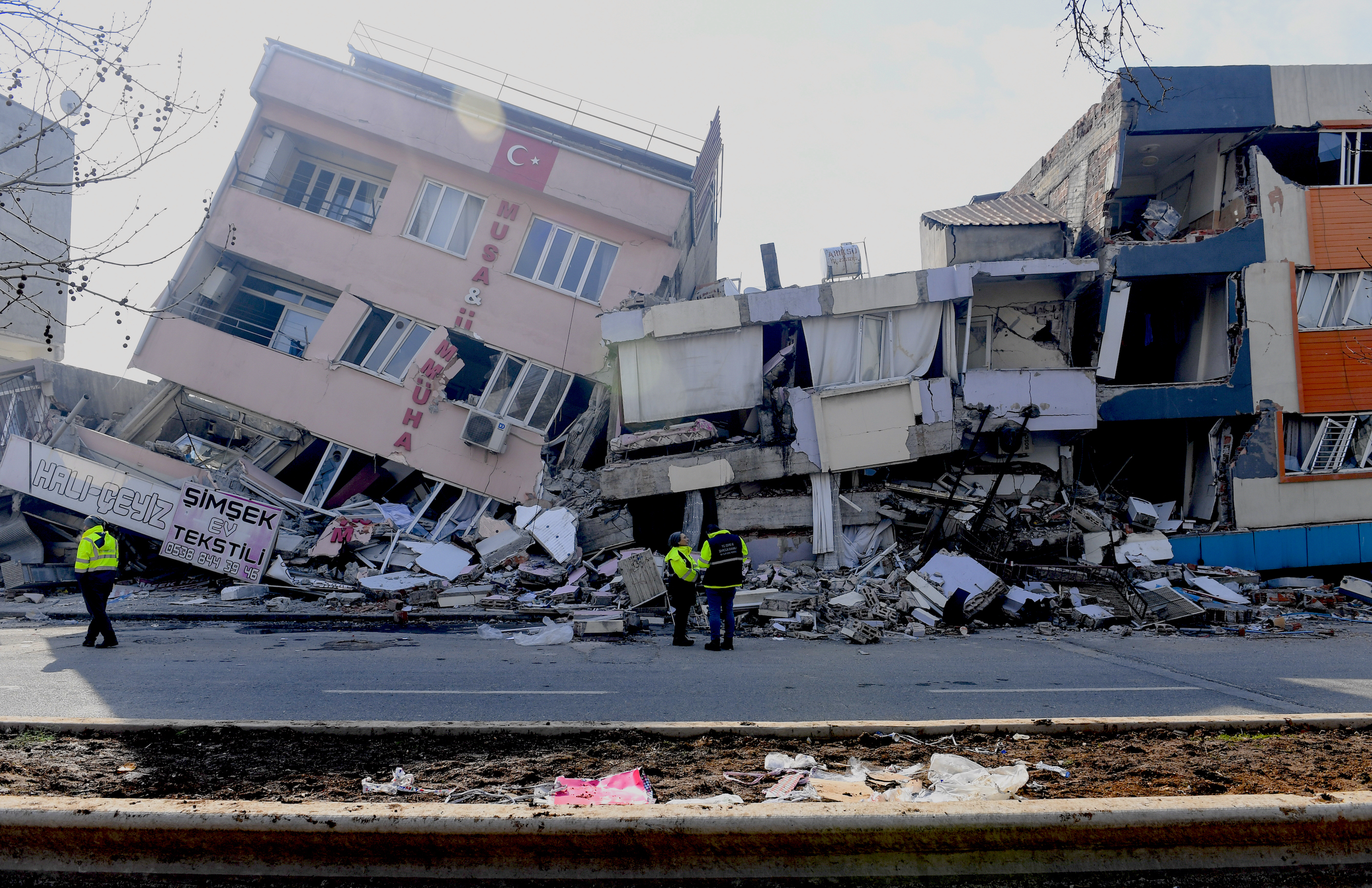
Damage from the 6 February 2023 earthquake in southern Türkiye.
The earthquakes in southern Türkiye on 6 February 2023 and the days that followed killed at least 53,537 people and destroyed more than 313,000 buildings. They left 3.3 million people homeless across 11 provinces with a territory of 110,000 sq km and a population of 15.6 million.
After the earthquakes, millions of people are still living in temporary shelter, most with only rudimentary services. The region’s economy is in ruins; businesses that managed to survive the earthquakes are suffering from a debilitating labor shortage caused by the exodus of up to five million people whose return depends on the restoration of decent living conditions.
The earthquakes affected everything from the economy to the environment, from women’s rights to cultural heritage. With a disaster of this scale, the issues become interlinked and impacts on one can lead to impacts on many others.
One intersection is women’s rights and security - economic and physical. According to the statistics, one in three women experiences physical or sexual violence at least once in her lifetime. In the aftermath of disasters, this risk is exacerbated, and in this region post-earthquake, domestic violence has significantly increased.
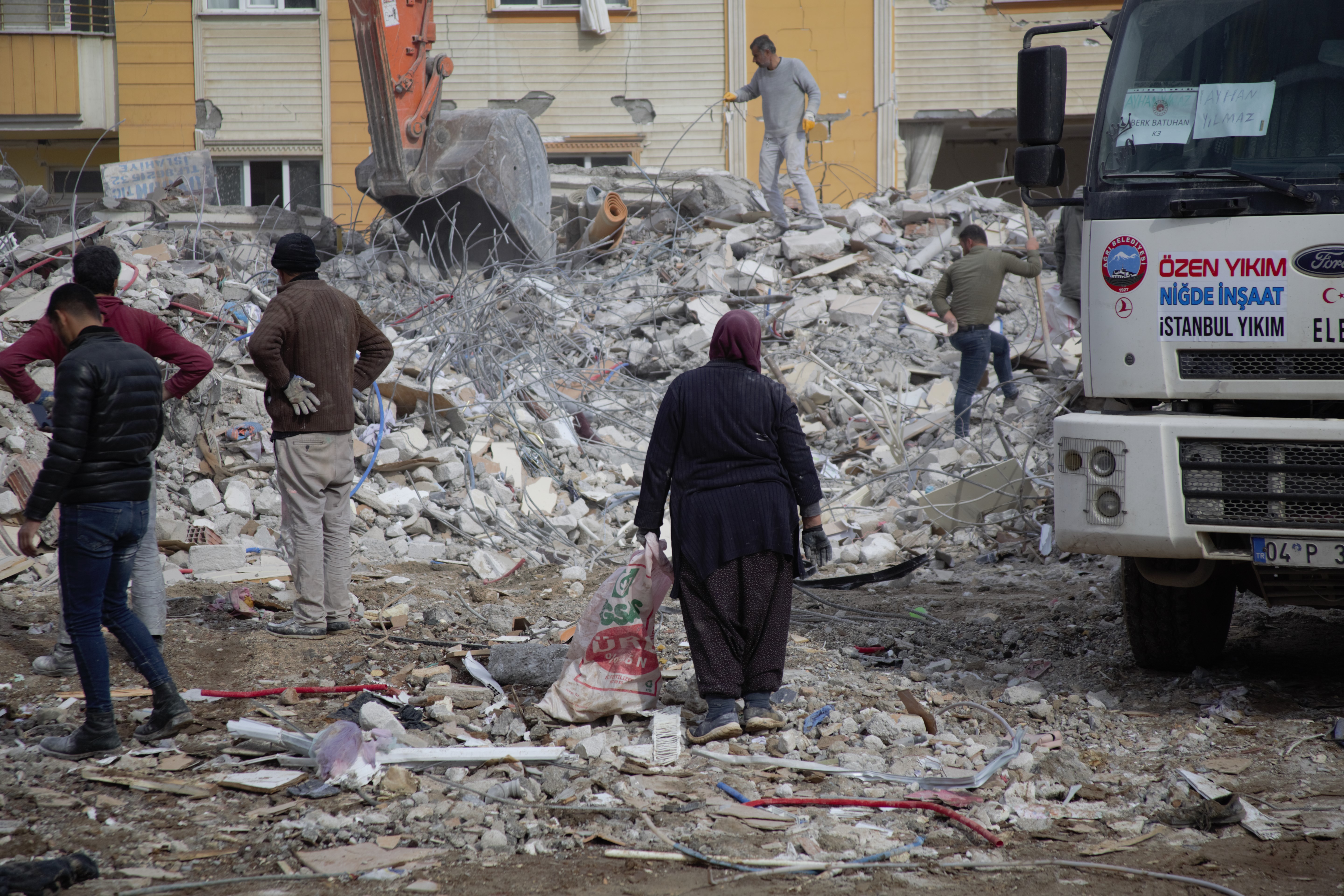
In the provinces hit by the earthquake, many women and girls are still residing in temporary settlements. They are facing greater risks of gender-based violence, abuse and exploitation in the post-disaster context. Their gender-specific needs went unnoticed and their roles as care providers were overlooked.
“The lack of privacy and personal space, coupled with increased responsibilities and domestic violence, has become a significant challenge for women who need to stay together in the same container with two or three families,” explains Seçil Ersak, a Program Coordinator for Mor Yerleşke (Purple Spaces).
Mor Yerleşke, supported by UNDP and operated by the Turkish Federation of Women Associations (TKDF), ensures access to a safe space and essential services for women and girls against the heightened risks of violence, exploitation and abuse and to respond to their immediate needs for psychosocial support, counselling and referrals.
With the reopening of schools and the resumption of daily activities, financial difficulties have started to escalate. The loss of jobs, coupled with spending entire days in tents or containers, has heightened conflicts within households, leading to increased violence.
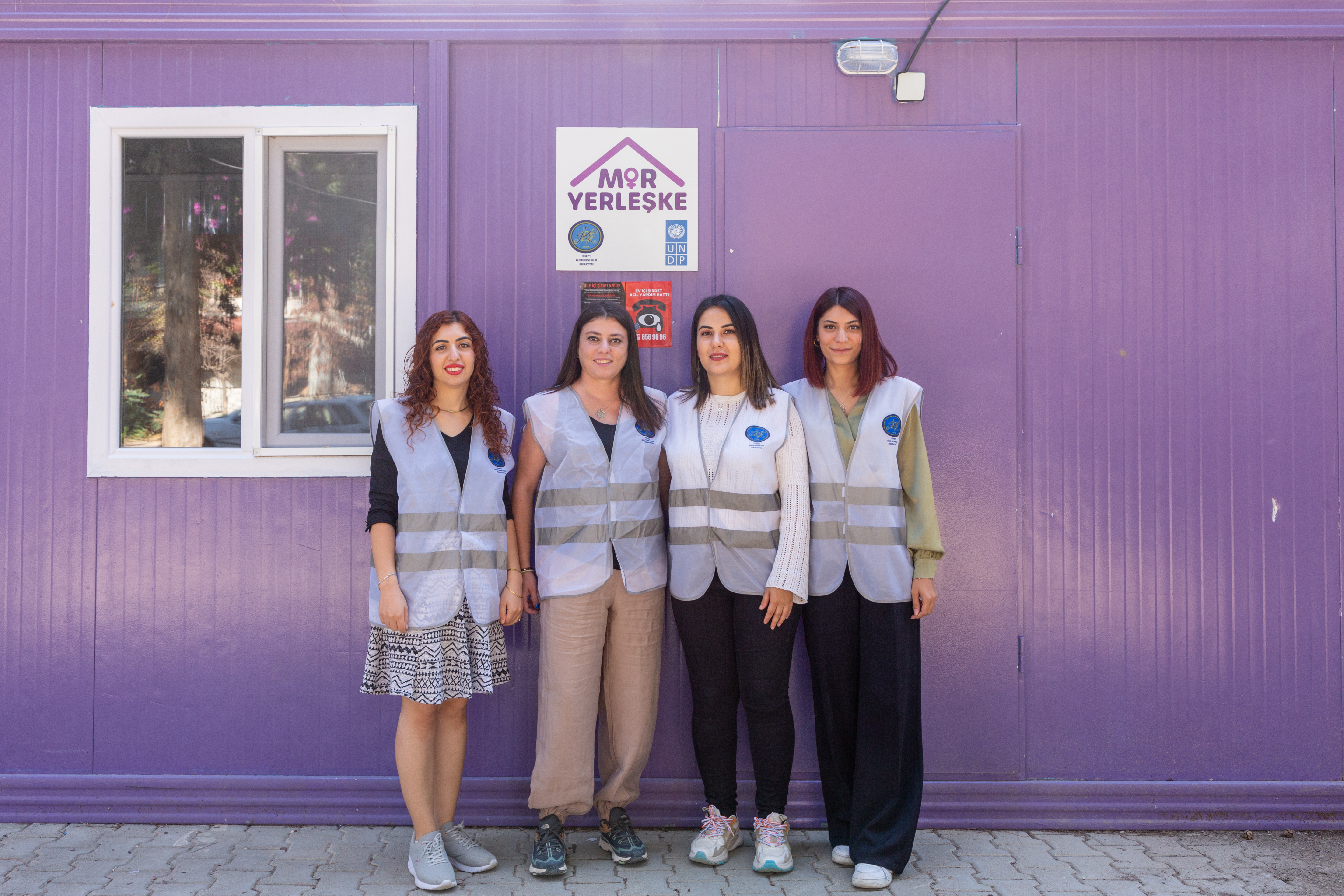

Purple spaces were set up in 30 locations in the earthquake zone to address the diverse needs of women, children, the elderly and individuals with disabilities. In addition to providing emergency services, they are designed for the appropriate physical space and environment for activities that demand special spatial arrangements, like breastfeeding, children’s activities, child care, midwifery support and individual and group counseling service
“One of the most significant problems individuals face after the earthquakes is uncertainty,” explains psychologist Sultan Nur Dağdelen. “Even knowing they have appointments here at the same day and time every week provides a considerable sense of relief.”
In earthquake response, well-organized and functioning social work and social protection system as a whole plays a central role in the recovery of life, and the prevention of and protection from violence. Social service professionals working in Adıyaman, Kahramanmaraş and Hatay received special training to help them address the new challenges.
In collaboration with those cities, UNDP supported the opening of an Accessible Living Center for persons with disabilities, the elderly and their caregivers and the refurbishment of a Women-Family Counselling Center in Kahramanmaraş. In Hatay and Adıyaman, two prefabricated buildings have been designed to provide social service for women and children, persons with disabilities, the elderly and their caregivers.


Supporting businesses doesn’t just serve towards rebuilding the economy but it also helps people and communities recover mentally and socially. Through a comprehensive regional grant programme, supported by the Government of Sweden, UNDP has helped 4,616 small businesses across eleven affected provinces restart operations.
The pilot phase in Kahramanmaraş specifically targeted women enterprises. Supporting the economic and social empowerment of women creates security for women and is also effective in combatting gender-based violence. UNDP provided cash grants to 257 women entrepreneurs Kahramanmaraş whose businesses were damaged or destroyed by the earthquakes.
For both business owners and employees, loss of family members and homes left them feeling unmoored and uncertain of the future. Many left their home cities seeking shelter elsewhere, and being able to return to their businesses and work provided grounding and hope for rebuilding.
Nihal Yaşar has operated a dairy business for over 30 years. The earthquake destroyed the wholesale warehouse where she supplied their products, and her whole family temporarily related to northern Black Sea coast. Suspending the business was her second devastation after the earthquake.
“It was horrible…this is my hometown. We can’t live or work anywhere else.”

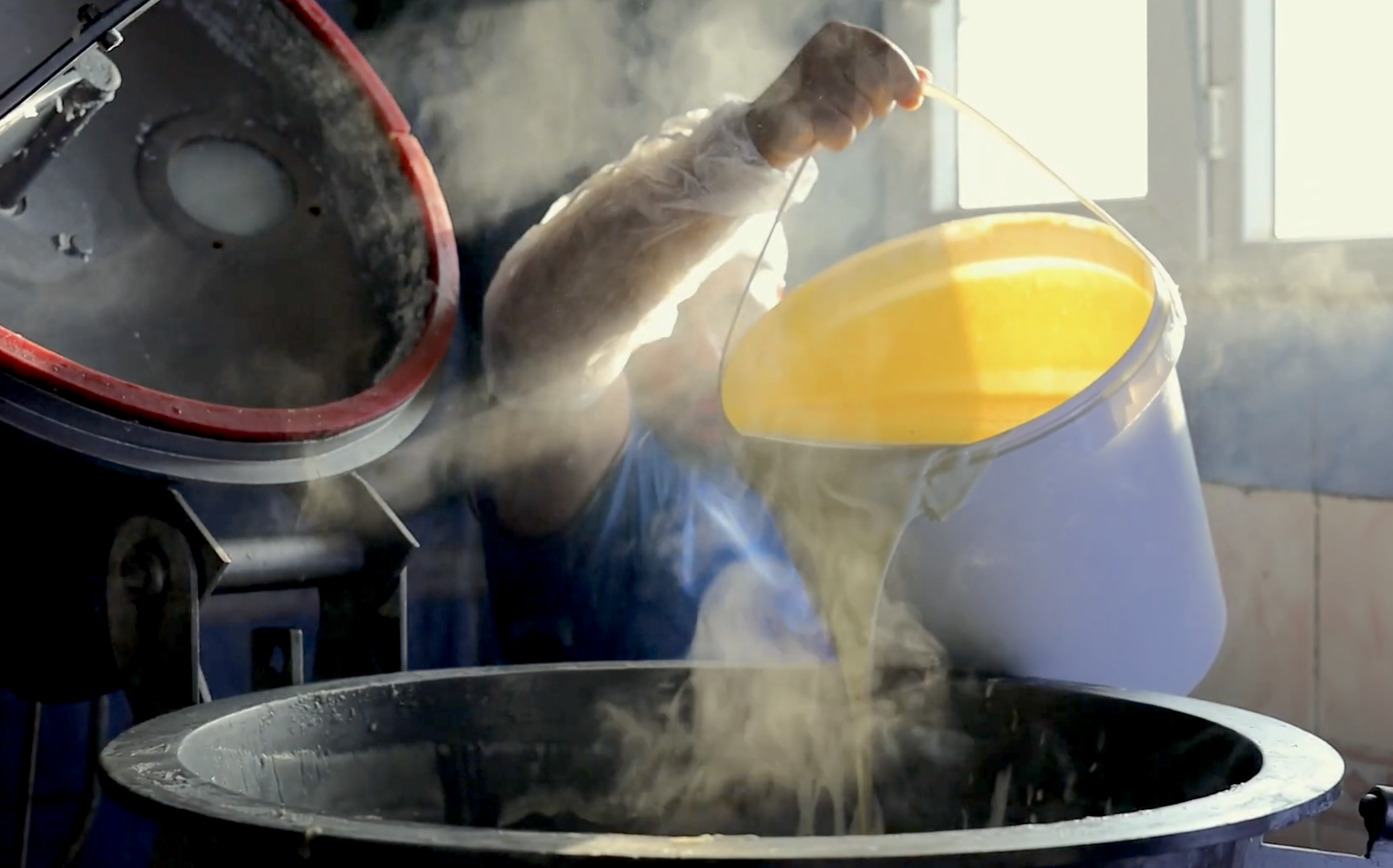
With the cash grant, she replaced her equipment and was able to resume producing yogurt and cheeses.
The earthquake damaged both the workspace and equipment for Ebru Kalakenger’s door production business. “We were finished,” she remembers. “We were exhausted. Our psychology was really bad.” Her family also had the chance to move elsewhere, but chose to stay and, together with other local business owners, rebuild the industry in Kahramanmaraş. She felt responsible for the 16 people she employed, who depended on the job to support their own families.
She received a tent from the government, and used the grant money to lay the concrete and replace her cutting machine. Now they are up and running again, and even dreaming of expansion.
The earthquake obliterated the region’s economy but also caused great damage to the unique cultural heritage in Türkiye.
The affected region is abundant in richly textured monuments and multicultural traditions. It houses the oldest known life-sized human sculpture and Early Neolithic structures thought to be the world’s first temple. This region is the “cradle of human civilization,” containing the birthplace of prophets of three world religions and home to people from different cultures for centuries.

In addition to the thousands of lives lost and homes and buildings destroyed, the earthquakes have also taken a priceless legacy: monuments and structures from the past. From ancient civilizations to restored Ottoman era marketplaces and arcades still in use, the earthquakes damaged or completely destroyed almost half of 8,444 historical structures across the eleven provinces.
This loss extends far beyond monetary value. In a region where historical tourism is prevalent, protecting and restoring cultural heritage contributes to economic vitality and livelihoods. But it also builds trust and solidarity and is a powerful antidote to the traumas inflicted by disasters.
Following the earthquake, UNDP provided customized containers to the region’s archeological museums for use in preserving and protecting at-risk collections and assisted the Ministry of Culture and Tourism in conducting assessments of the damage to historical sites.

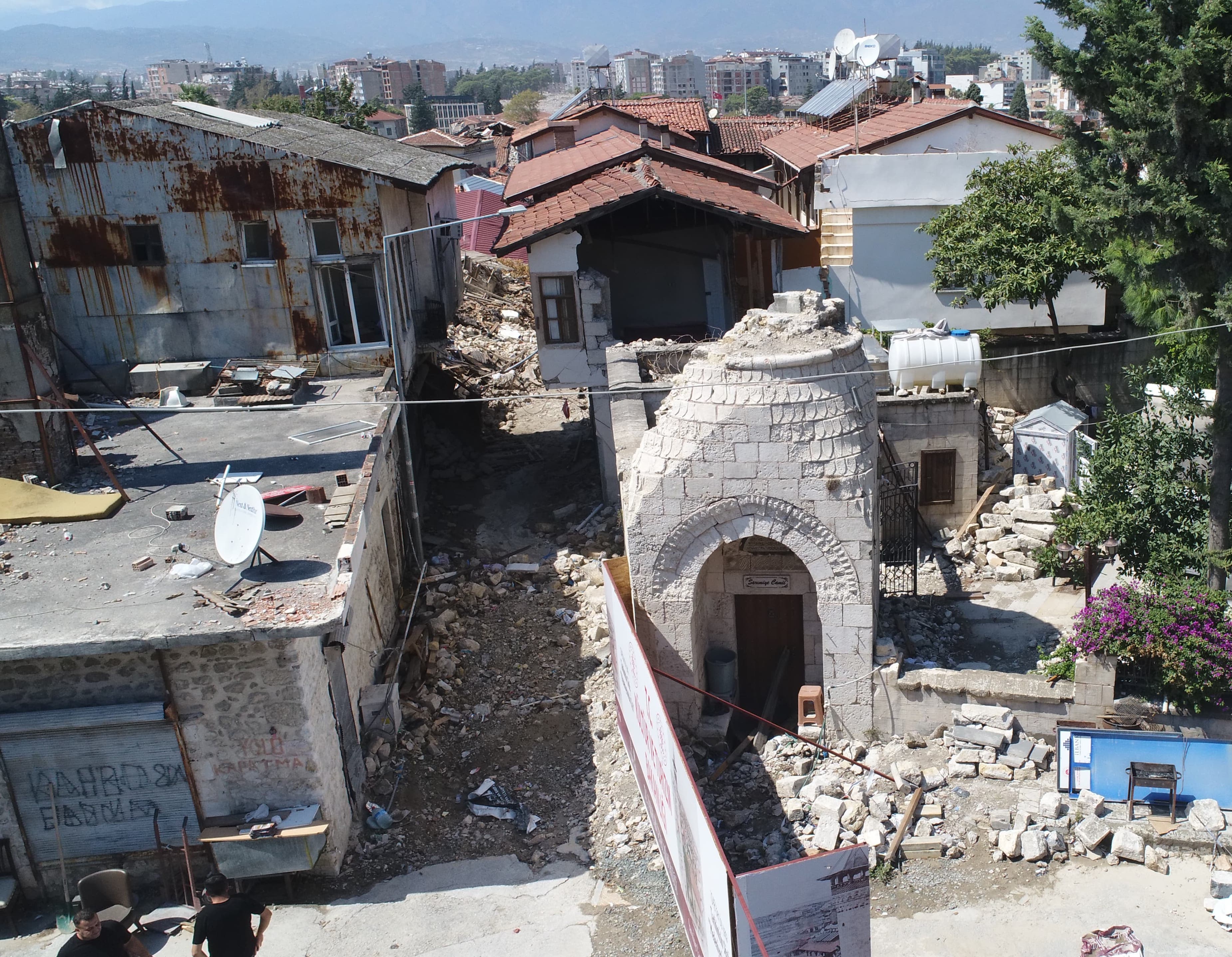
Now, UNDP has launched a funding campaign to help protect and rebuild this cultural legacy, focusing on six sites that capture the region’s geographic and cultural diversity: the Hatay Archaeology Museum, the 2,000-year-old Gaziantep Castle; the 14th century Sarımiye Mosque in central Antakya, Hatay’s Mar Yuhanna Greek Orthodox Church, central Kahramanmaraş’ market bazaar of hundreds of shops, and the archaeological site of ancient Arsameia in Adiyaman, where King Mithridates once ruled.
The tale of rebuilding is not just about reconstructing physical structures and reopening businesses; it's also about supporting the empowerment of those who often find themselves left behind and voiceless. And recognizing that recovery must be taken from many sides to be successful and sustainable.

 Locations
Locations



